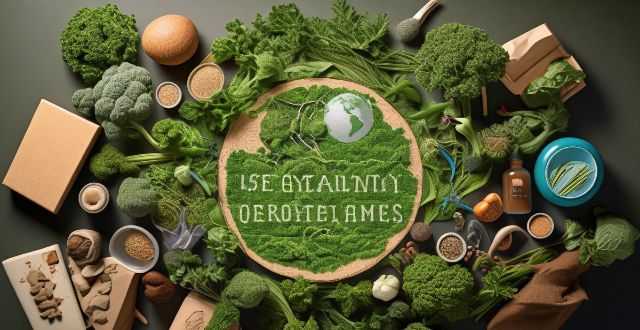The use of genetically modified organisms (GMOs) in agriculture is a complex and contentious issue that raises ethical questions. Proponents argue that GMOs offer benefits such as increased crop yields, reduced pesticide use, improved nutrient content, and environmental sustainability. Opponents raise concerns about human health risks, economic concentration, environmental impact, and ethical considerations. Key ethical considerations include scientific evidence, public perception, equity and access, environmental stewardship, ethical principles, regulatory oversight, long-term monitoring, global collaboration, innovation and alternatives, and education and awareness.

Is it Ethical to Use Genetically Modified Organisms (GMOs) in Agriculture?
The use of genetically modified organisms (GMOs) in agriculture is a complex and contentious issue that raises ethical questions. While some argue that GMOs can help increase crop yields and reduce the use of pesticides, others are concerned about potential risks to human health and the environment. In this article, we will explore both sides of the debate and provide an overview of the key ethical considerations surrounding the use of GMOs in agriculture.
Proponents of GMOs in Agriculture
Proponents of GMOs argue that they offer several benefits for agriculture, including:
- Increased Crop Yields: GMO crops have been engineered to resist pests, diseases, and environmental stresses, which can lead to higher yields and increased food production.
- Reduced Pesticide Use: Some GMO crops are designed to produce their own pesticides, reducing the need for chemical pesticides and minimizing exposure to harmful chemicals for farmers and consumers.
- Improved Nutrient Content: GMO crops can be engineered to contain higher levels of essential nutrients, such as vitamin A, which could help address nutrient deficiencies in developing countries.
- Environmental Sustainability: By reducing the need for chemical inputs and increasing crop yields, GMOs may contribute to more sustainable agricultural practices.
Opponents of GMOs in Agriculture
Opponents of GMOs raise several concerns about their use in agriculture, including:
- Human Health Risks: There is ongoing debate about the potential long-term health effects of consuming GMO foods, although no conclusive evidence has been found to date linking GMO consumption to adverse health outcomes.
- Economic Concentration: The majority of GMO seeds are patented and owned by a few large corporations, leading to concerns about market concentration and reduced access to seeds for small-scale farmers.
- Environmental Impact: The widespread use of GMO crops could lead to the loss of biodiversity, as well as the development of "superweeds" and "superbugs" that are resistant to the pesticides produced by GMO plants.
- Ethical Considerations: Some argue that modifying the genetic makeup of organisms is unnatural and goes against the principles of traditional farming practices.
Key Ethical Considerations
When considering the ethics of using GMOs in agriculture, several factors must be taken into account:
1. Scientific Evidence: It is essential to base decisions on sound scientific evidence regarding the safety and efficacy of GMOs.
2. Public Perception: Public trust in GMOs is crucial for their acceptance and adoption. Transparency and open communication about the benefits and risks of GMOs are necessary to build trust among consumers.
3. Equity and Access: Ensuring that the benefits of GMOs are accessible to all farmers, regardless of their scale or location, is critical for promoting equity in agriculture.
4. Environmental Stewardship: The potential environmental impacts of GMOs must be carefully considered and mitigated through responsible stewardship practices.
5. Ethical Principles: The ethical principles of respect for nature, non-maleficence (do no harm), and justice should guide decision-making processes regarding the use of GMOs in agriculture.
6. Regulatory Oversight: Adequate regulatory frameworks are necessary to ensure that GMOs are developed and used safely and responsibly.
7. Long-Term Monitoring: Ongoing monitoring of the long-term effects of GMOs on human health and the environment is essential to inform future decisions about their use.
8. Global Collaboration: International cooperation and collaboration are crucial for addressing global challenges related to food security and sustainable agriculture.
9. Innovation and Alternatives: Investing in research and development of alternative agricultural technologies can provide diverse options for meeting global food needs while minimizing potential risks associated with GMOs.
10. Education and Awareness: Educating farmers, consumers, and policymakers about the benefits and risks of GMOs can help foster informed decision-making and promote responsible use of these technologies.